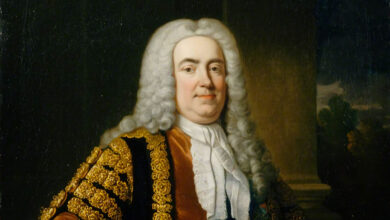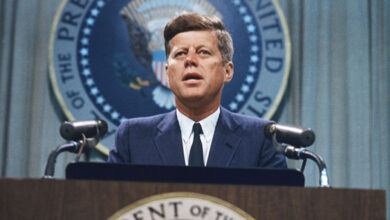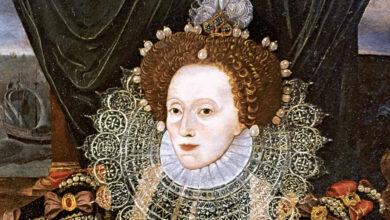Podcast: Play in new window | Download
Subscribe: Spotify | Amazon Music | Youtube Music | RSS
Charlton Heston, born John Charles Carter on the 4th of October, 1923, in Evanston, Illinois, was a titan of American cinema. His booming voice, imposing physique, and captivating screen presence made him a star for over four decades. He embodied heroes of biblical epics, historical dramas, and science fiction adventures, leaving an undeniable mark on Hollywood history. However, his personal life and political views were as complex and controversial as some of the characters he portrayed.
Heston’s early life wasn’t a foreshadowing of his future grandeur. He was a shy and introverted child. Finding solace in acting after unexpectedly landing a role in a high school play, a passion was sparked in him that led him to Northwestern University, where he honed his craft and earned a drama scholarship. His studies were interrupted by World War II, during which he served in the United States Army Air Forces. Upon returning from service, he adopted the stage name Charlton Heston and began his professional acting career in earnest. His talent quickly shone through, leading him to Broadway in 1947.
Hollywood took notice of Heston’s commanding stage presence. In 1950, he made his film debut at 26 in “Dark City” and soon established himself as a force to be reckoned with. His big break came when Cecil B. DeMille cast him as a circus manager in “The Greatest Show on Earth”, named the best picture of 1952 by the Motion Picture Academy. He played Moses in “The Ten Commandments” in 1956 and “Ben-Hur” in 1959, for which he won the Academy Award for Best Actor in 1960, cementing his image as a heroic figure. Heston’s powerful physique and unwavering gaze made him the perfect choice for these larger-than-life roles. However, he wasn’t content with being typecast. He actively sought diverse projects, showcasing his versatility in films like the historical drama “El Cid” in 1961 and the science fiction classic “Planet of the Apes” in 1968.
Despite his Hollywood persona as a strong, often authoritarian figure, Heston was an outspoken advocate for civil rights in the 1950s and 1960s. He marched alongside Dr. Martin Luther King Jr. and publicly condemned racial discrimination. However, his political views significantly shifted in the later years of his career. He became a vocal supporter of the Republican Party and a prominent figure in the National Rifle Association, serving as its president from 1998 to 2003. This shift in ideology alienated some of his former admirers, creating a contradiction surrounding his public image.
Heston’s personal life was a tapestry woven with threads of enduring love and profound loss. In 1944, he married Lydia Marie Clarke, a dancer he met at Northwestern. Their connection was immediate, and their marriage defied the Hollywood odds, lasting over 60 years until Heston’s death in 2008. Together, they raised a son, Fraser, and a daughter, Holly. Heston was a devoted family man, cherishing his time with Lydia and their children. He often spoke of Lydia as his rock, a constant source of support throughout his career.
However, Heston’s life wasn’t without its challenges. In 2002, he bravely disclosed his diagnosis with Alzheimer’s disease. This progressive neurological condition gradually eroded his memory and cognitive abilities. Despite the personal struggles, Heston’s family remained a constant source of strength. Heston’s decision to go public with his diagnosis not only raised awareness about the disease but also showcased the unwavering love and support within his family unit.
Charlton Heston died on the 5th of April, 2008, at the age of 84, leaving behind a rich cinematic legacy and one of complex political views that continues to spark debate.
Whether remembered as the heroic Moses leading the Israelites out of Egypt, the vengeful Judah Ben-Hur, or the bewildered astronaut encountering a world ruled by apes, Charlton Heston’s performances left an undeniable mark on cinema. He was a giant of the silver screen, an actor who could command attention with a single glance. His legacy, however, extends beyond the characters he portrayed. He was a man of contradictions, a champion for some but a controversial figure for others. However, one thing remains certain: Charlton Heston was a true Hollywood colossus, a force of nature who left audiences enthralled and the film industry forever changed.
Podcast: Play in new window | Download
Subscribe: Spotify | Amazon Music | Youtube Music | RSS




